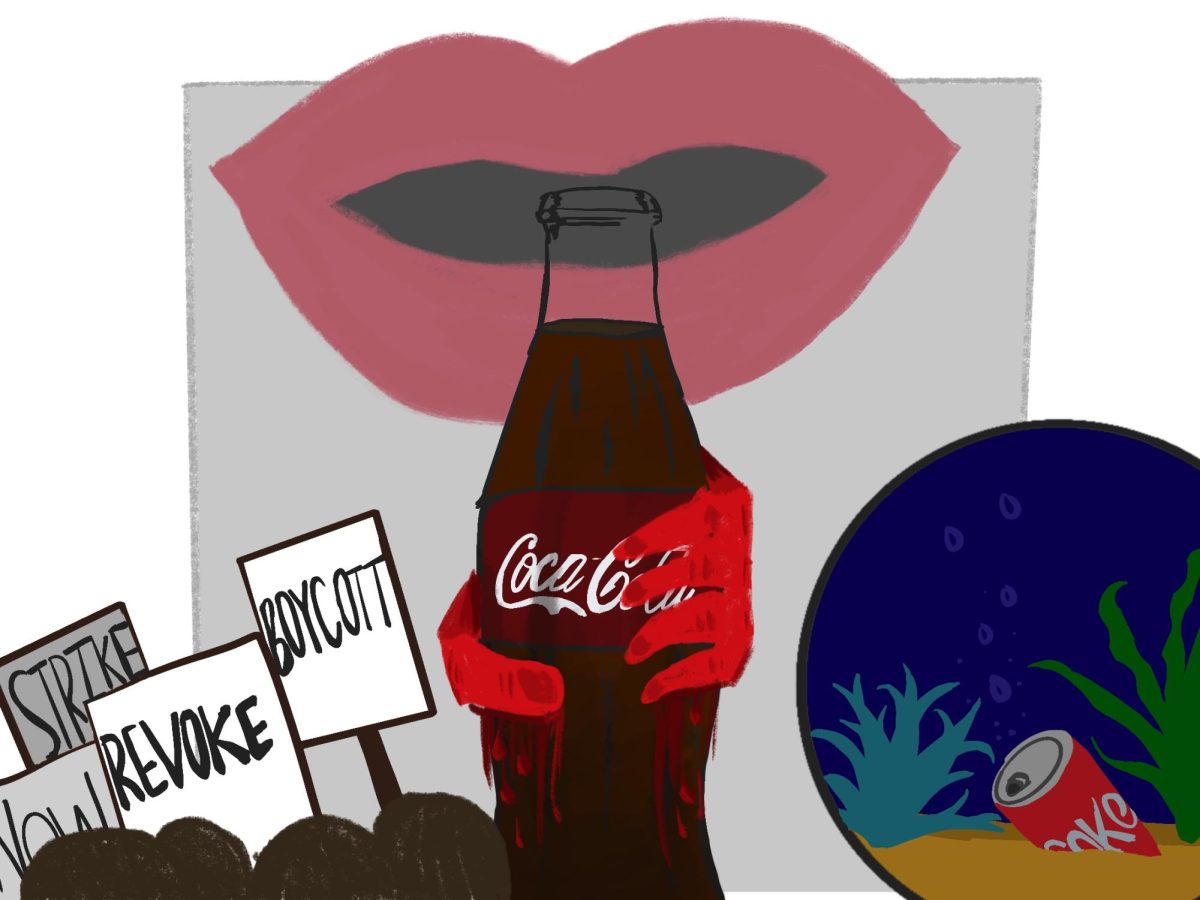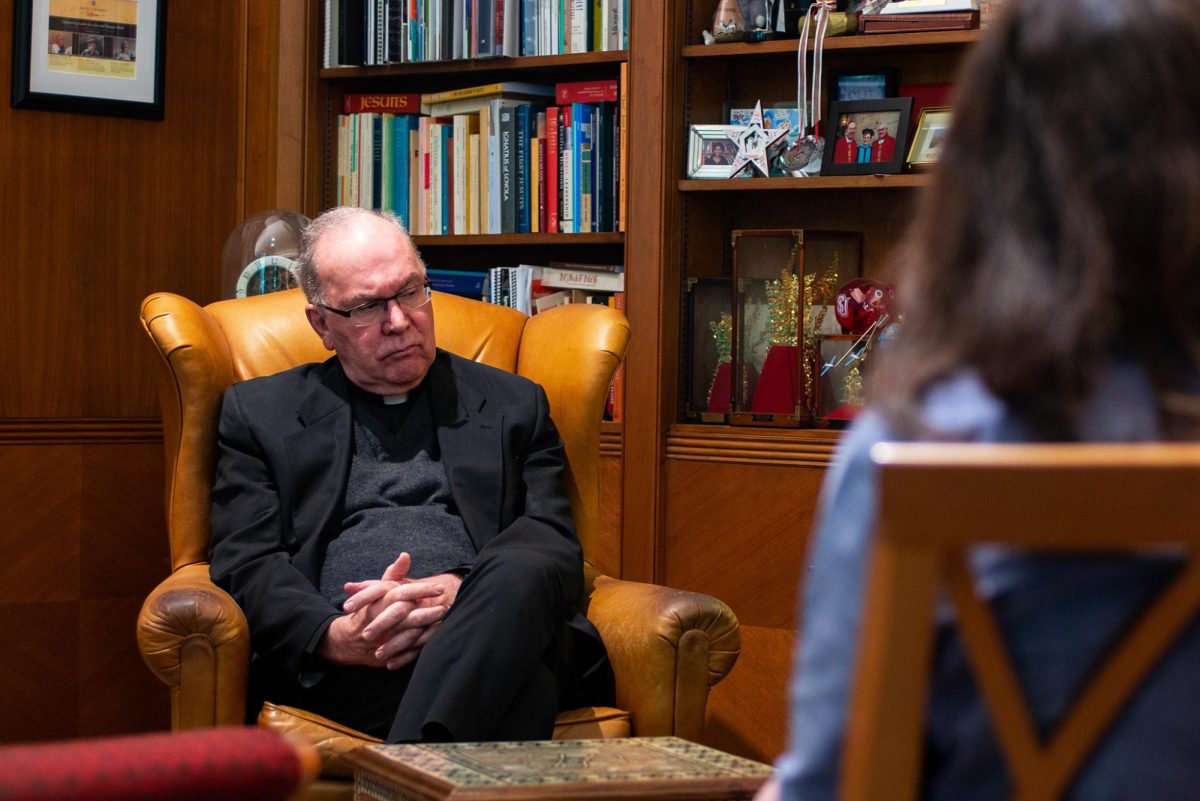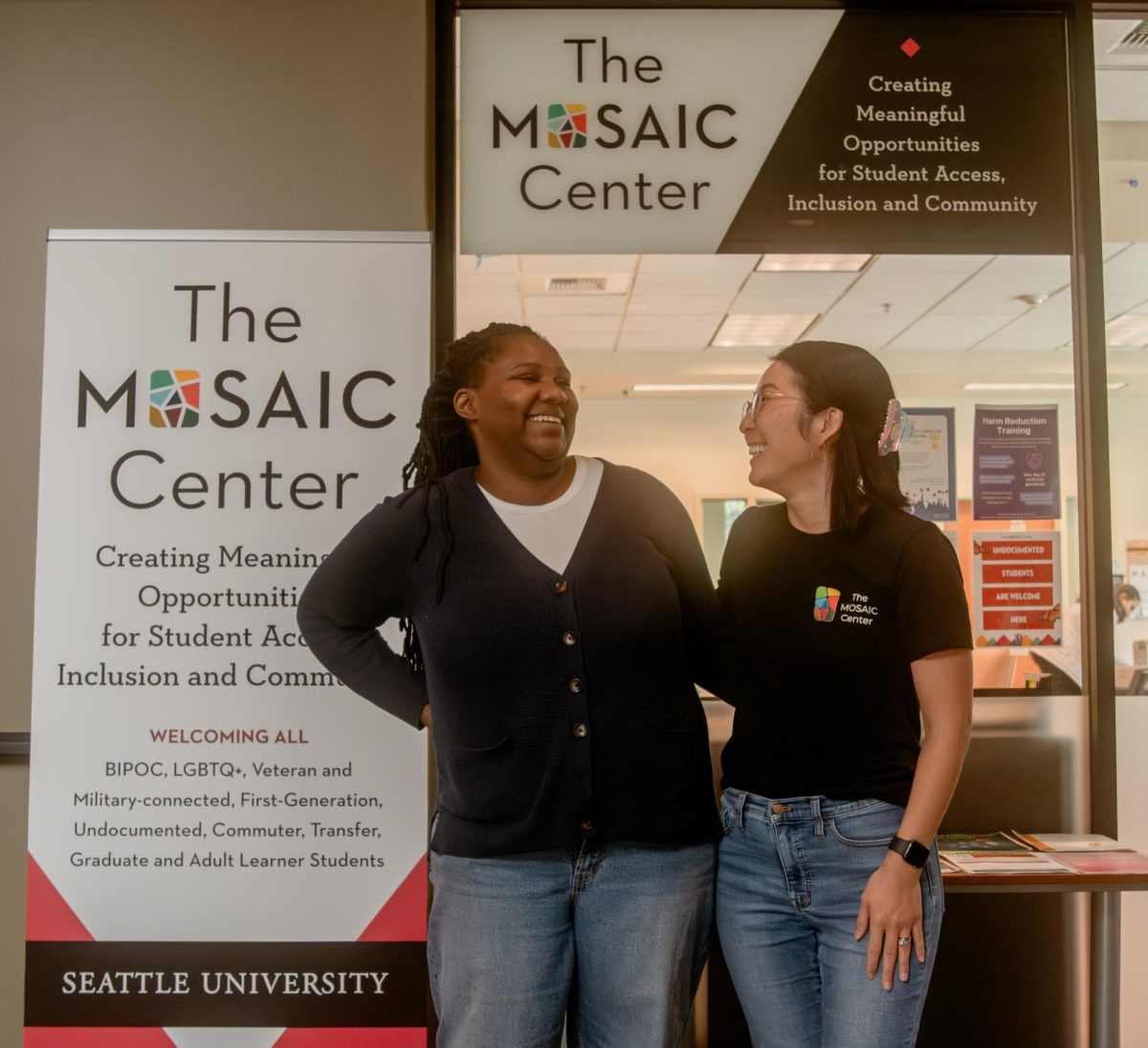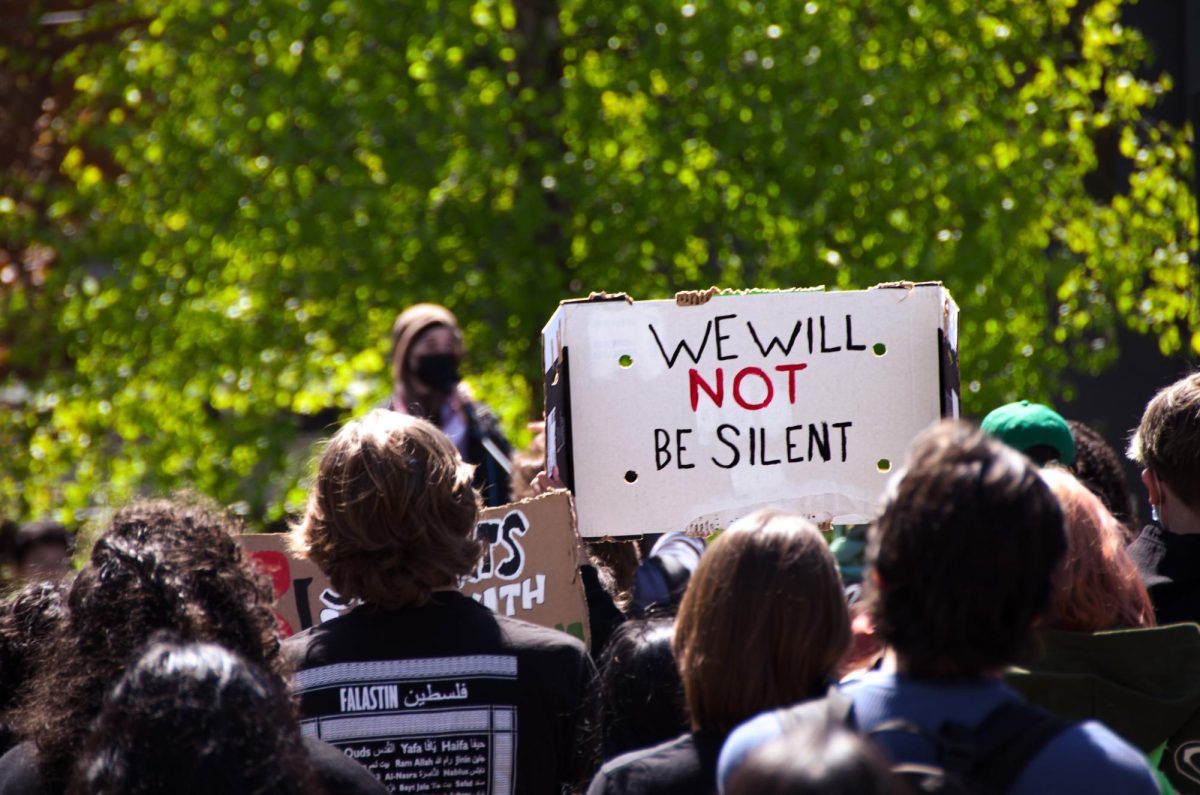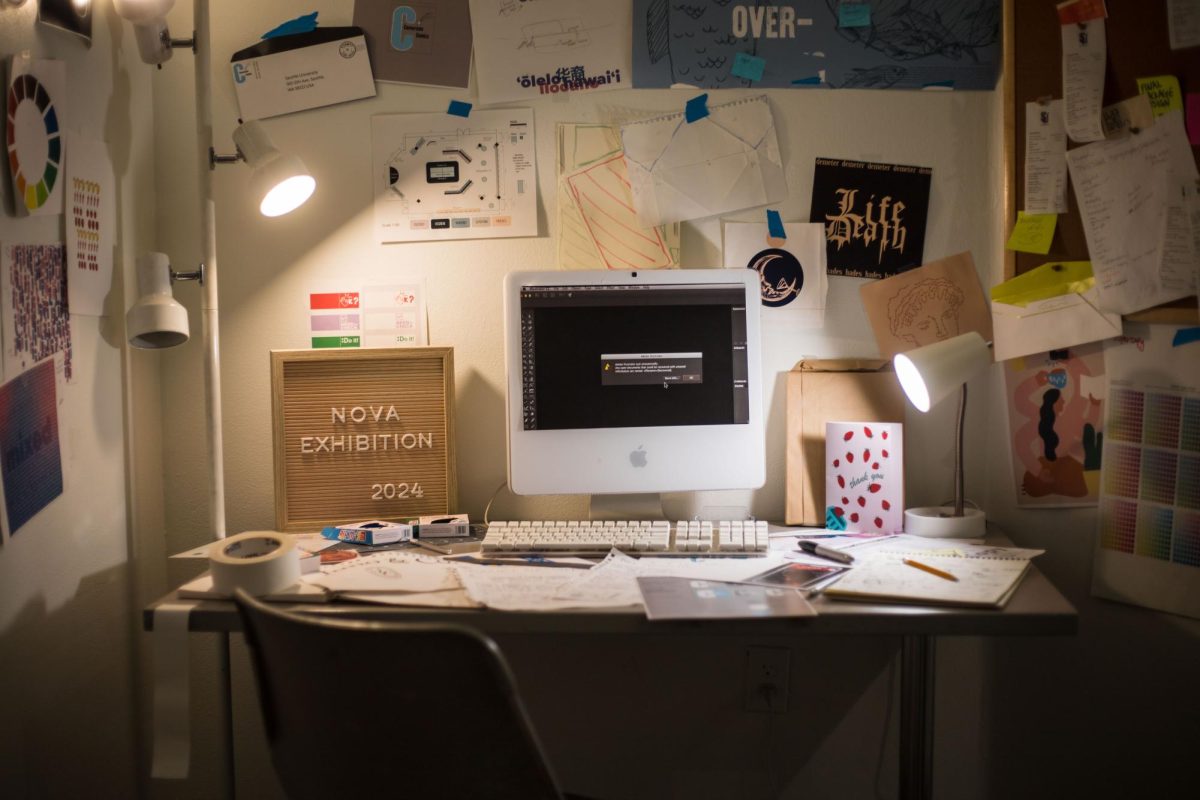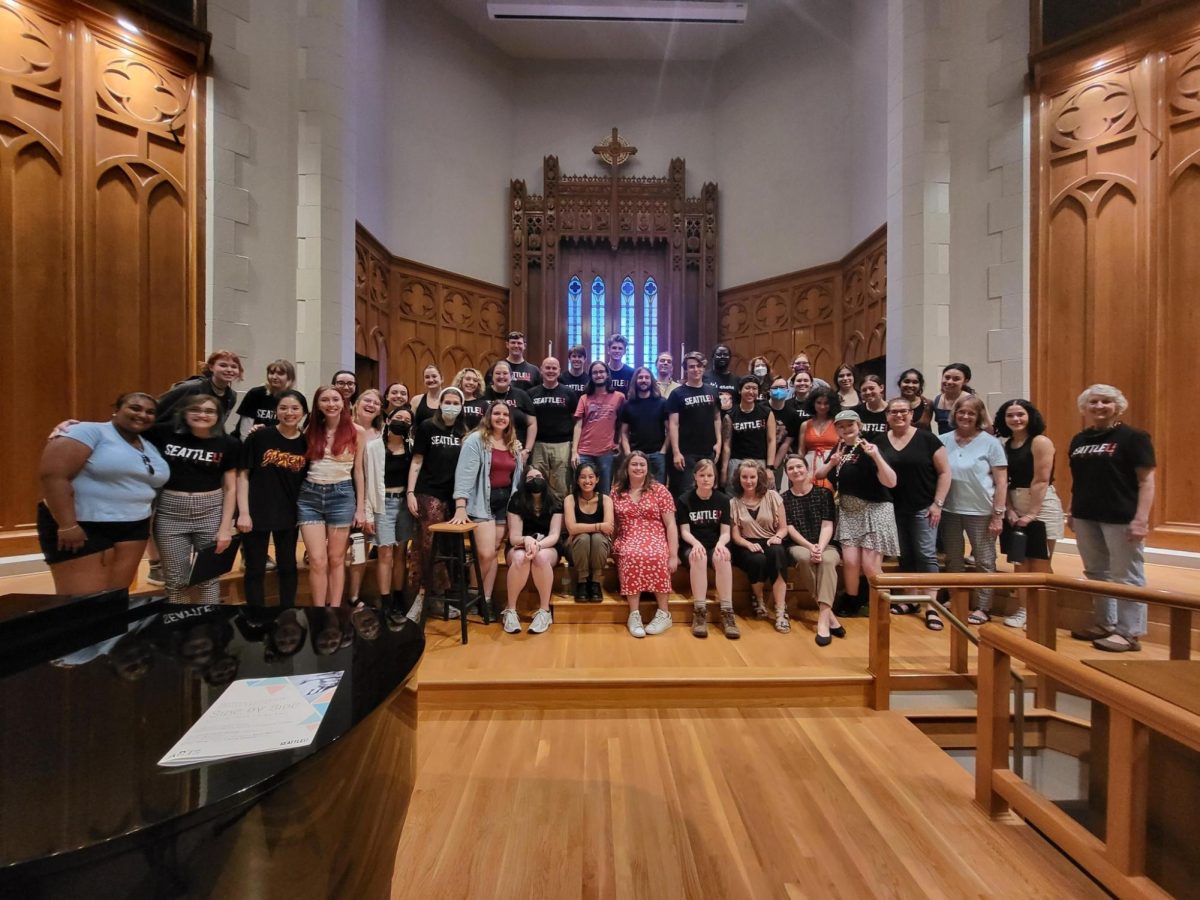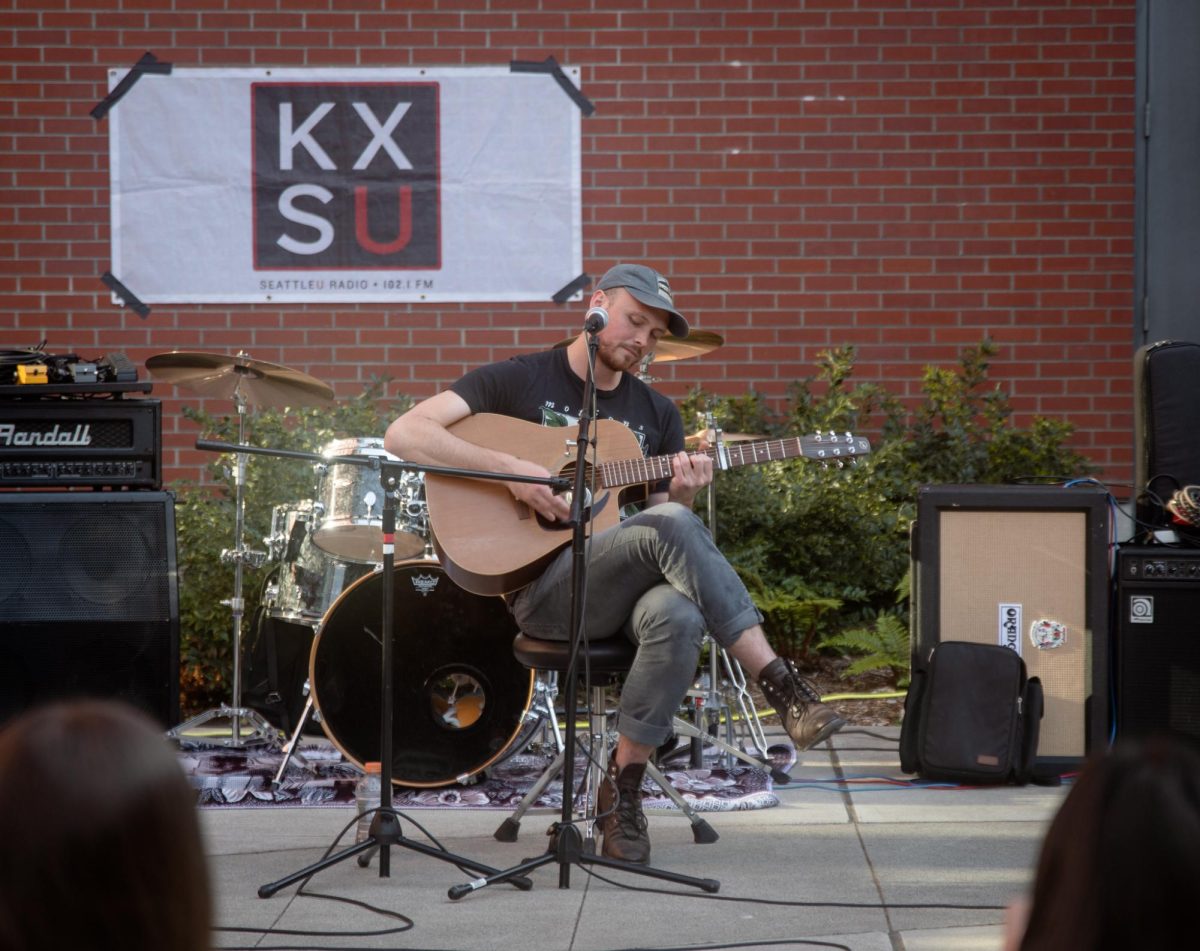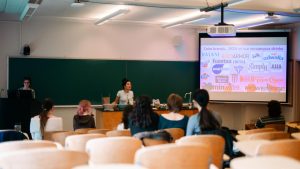
Sustainable Student Action (SSA), an environmental justice club with an impressive history on campus, is in the midst of a new activist campaign, pushing the school to end its contract with Coca-Cola. The company has been accused of, among other things, making use of child labor, breaking up unions, and environmentally unfriendly practices. Evelyn Smith, a first-year biology major and SSA representative, has helped to lead events in this campaign.
“We’re a pretty small club, but we have a big history,” Smith said. “We led the divestment campaign from fossil fuels, and that just happened recently. It was a 10 year campaign, it was a pretty big deal.”
Seattle University voted to fully divest from fossil fuels in 2018, and completed full divestment in June of 2023, but not without years of student activism from SSA.
Lucy Cress, a third-year social work major and SSA representative, elaborated on this campaign, giving insight into the types of direct action prevalent throughout the history of the club. During the fossil fuel campaign, following a meeting with previous President Sundborg about fossil fuel divestment where he claimed he was not educated on issues regarding fossil fuels, SSA members gave Sundborg one book every hour about climate justice.
“If you’re not educated, get educated!” Cress said.
The first of three SSA events surrounding the club’s current campaign, Revoke Coke, held on Tuesday, April 9, was a screening of a documentary exploring various issues with Coca-Cola, including allegations of child labor, violent union suppression, and water pollution in South America. The documentary featured a response from Coca-Cola, claiming the allegations are “inaccurate, biased, and outdated.”
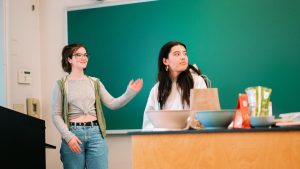
April Atwood, a professor in Seattle U’s business school, teaches classes about sustainable marketing. Atwood is currently working on writing cases about sustainable business practices from the brands Guayaki, Lipton and Fair Trade Sports.
“A lot of those things happened 10 to 15 years ago, and so I think if you asked them now, Coke would say ‘Oh we don’t do that anymore, we cleaned that up,’” Atwood said. “It’s at least good to hear what the company has to say, you may or may not believe everything that they say, you’ve got to figure that out.”
Coca-Cola, in an internally conducted study on child labor in their supply chains, claimed that they have procedures to “help ensure that, as a system, we create a positive impact in the communities where we operate, mitigate social and environmental risks and remediate issues when they arise,” and that they “use a variety of approaches to address child labor, forced labor, and land rights in [their] sugar supply chain.”
Atwood also explained that the local Coca-Cola sales teams the school would likely work with don’t have influence on the corporation’s policies as a whole.
SSA’s campaign comes during this year’s Earth Month, with a global theme of “People vs. Plastic.” Coca-Cola has been ranked the number one plastic polluter in the world in a survey conducted by the charity organization Break Free From Plastic.
Aoife Kennedy, a third-year environmental studies major and SSA representative, helped run the documentary screening event along with Smith. The next two events in SSA’s Revoke Coke series are an April 16 slime making night paired with education about exploitation by Coca-Cola in Admin 307, and an April 23 discussion of future action and Kahoot with prizes in Bannan 407.
“SU has Earth Month activities, and has their Earth Talks, and are promoting that they are also participating in people versus plastic,” Kennedy said. “I think we’re just trying to highlight the hypocrisy of Seattle U being able to promote itself as sustainably conscious when it contracts with the world’s top plastic polluter.”
SSA is fighting an uphill battle. Seattle U recently signed a contract continuing their partnership with Coca-Cola, beginning in 2013, for another 10 years. According to SSA, the current contract requires 90% of the drinks sold on campus to be Coca-Cola products. During a presentation before the movie screening, Kennedy and Smith highlighted that Coca-Cola owns brands like Fairlife protein drinks, Minute Maid, Dasani bottled water and Powerade –- brands that many students may see as unaffiliated with the company.
While the contract renewal was a decision made recently, backlash against Coca-Cola at Seattle U is nothing new. The Spectator reported in 2013 about student backlash against Coca-Cola. The current campaign is a continuation of previous SSA efforts.
“In 2021, SSA wrote a petition, and suggestions, and did an Earth Talk urging administration to drop the contract with this unethical company, and they refused to do so, and they resigned again in 2023,” Kennedy said.
Smith explained that before the contract was renewed, SSA held an Earth Talk discussing Revoke Coke, as well details of what divestment would look like, and potential alternative companies. Cress elaborated that SSA has a list of substitute drink brands that are more sustainable or local.
“It’s hard to get these campaigns moving between generations of students because [the contracts] are 10 years and that means you need to keep the momentum going for all 10 years, even with so much turnover,” Smith said. “Unfortunately the campaign just lost a little bit of steam, and then it was signed.”
As part of the current campaign, SSA has made attempts to contact the Seattle U procurements office, who handle food and beverage purchases for the school.
“They haven’t really been interested in giving us specific details about the Coca-Cola contract, mostly they pointed us to their website and their sustainability values,” Smith said. “In terms of their actual practices, it’s not really aligning with that mission on the website that they directed us to.”
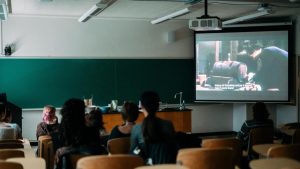
Sital Kalantry, a professor of law, and expert in contract law explained that, although she can’t know without seeing the contract, withdrawal from these types of contracts usually has legal strings attached.
“Typically, contracts have termination provisions that require notice and might have penalties,” Kalantry wrote.
SSA is aware of the challenges their campaign faces.
“It’s tricky because the ultimate goal is not something that’s possible right now,” Cress said. “The ultimate goal would be to end the contract with Coca-Cola. That’s long term because it’s a 10 year contract.”
The understanding of the contract from multiple SSA representatives is that the contract involves a sales quota, where SU has to sell a certain amount of Coca-Cola products. Atwood, who had seen the first contract with Coca-Cola, said that it did involve a sales quota.
“Contracts can be binding, but there have been cases where universities can end the contract before the 10 years, so that would be the ideal conclusion to this, and I would encourage the administration to investigate the contract and how we can cut ties with it as soon as possible,” Smith said.
Both Smith and Cress explained that right now, SSA is mainly focused on raising awareness amongst the student body in regards to this issue, in order to spark change over a long period of time. First-year Psychology Major Aicha Toure discussed that Seattle U leaving their contract is an unrealistic goal, but that there are other avenues through which to incite change.
“I do think it’s important for students to be informed about the things they’re consuming, and at least this campaign can give students the tools to make informed decisions,” Toure said.
Central to Seattle U’s values and branding as an institution are values of sustainability and social justice. SSA sees the school’s contract with Coca-Cola as out of step with these purported values.
“This is something they pride themselves on, so when we investigate further and we see them partnering with, before it was fossil fuels, and now it’s Coca-Cola, and I’m sure there’s many other companies like Boeing on our campus that don’t fit our values,” Smith said. “It feels a little two-faced.”
Kennedy expressed similar views of hypocrisy on the part of the administration.
“Our entire mission statement is empowering leaders for a just and humane world. Coca-Cola is not just, nor humane,” Kennedy said.
Atwood contextualized any current business decisions of the university around its growing budgeting issues.
“I can well imagine the pressure internally to conserve, to spend as little as possible, and so it’s difficult, and the organization knows it. You need to be financially stable, but also, how do you move towards making sure your actions are more in concert with what you say you believe in?” Atwood said. “Clearly the university wants to be smart with its money, doesn’t have extra money to throw around, and they’ve also made very public statements about supporting a whole bunch of different dimensions related to sustainability. How they balance those is something they’re feeling their way through.”
Atwood stressed the importance of student action to make change on campus, through student action like the SSA campaign.
“In many ways that lots of other universities do not, Seattle U does pay attention to students,” she said. “If students are unhappy with something, the university’s ears are up. The students have way more power than I think they would guess.”






